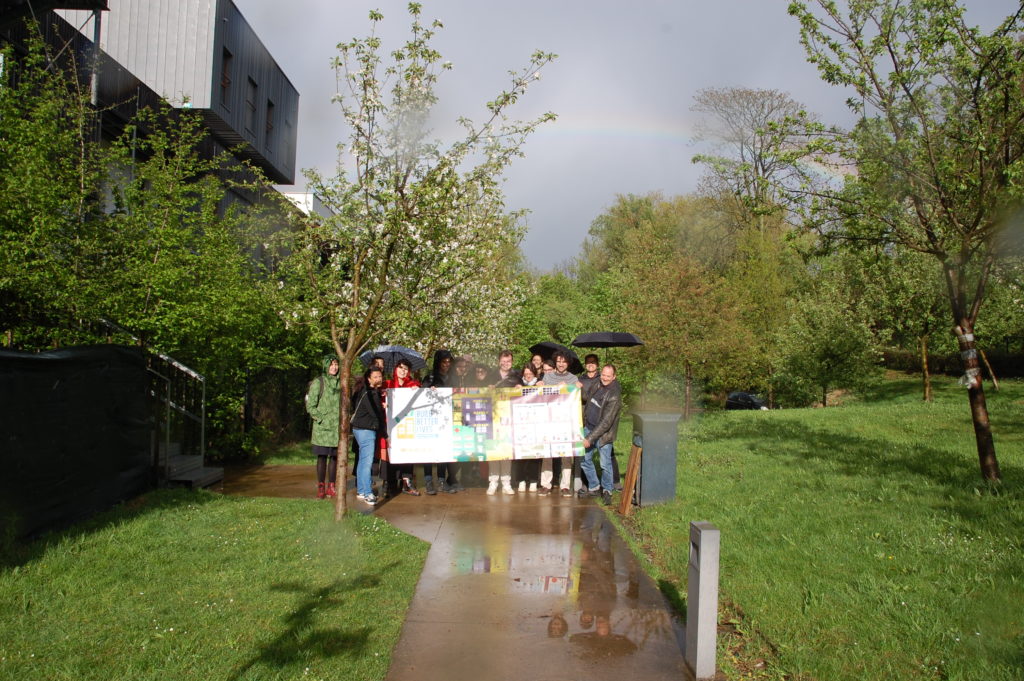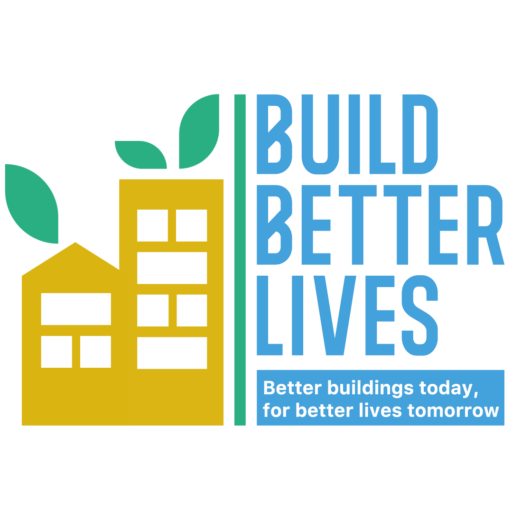Written by Erman Erogan, Buildings Policy and Campaign Assistant at Climate Action Network (CAN) Europe
Last month, despite the wind and rain, supporters of the Build Better Lives campaign made the journey out to the Colonel Bourg social housing project in the neighbourhood of Reyers in the heart of Schaerbeek, Brussels, to see how affordable & sustainable housing projects are building better lives.
The project, managed by the Foyer Schaerbeekois, is one of the oldest social housing companies of the Brussels region. For years, the project has been providing decent, affordable living spaces.
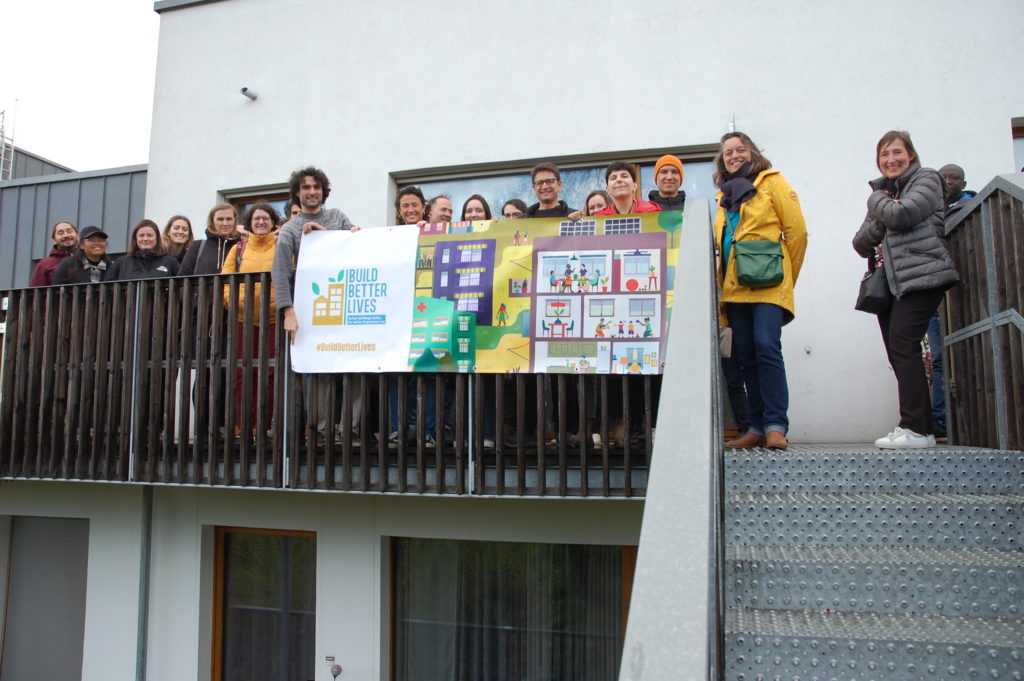
This site was designed and built between 2014 and 2016 as a passive building, this standard relies on high-performance insulation on walls and ceilings and triple glazing in the windows of the flats, efficient ventilation and solar energy collection via large windows in the apartments to ensure an optimum thermal comfort, meeting the criteria of a net heating energy need of maximum 15 kWh/m² per year. The tenants of the 84 apartments benefit from the technical specifications of this site, where no fossil fuels are used, and a large portion of the green roof is covered with solar PV and solar thermal panels.
The energy produced on site is mainly used for feeding the common spaces and utilities and the solar thermal preheats domestic hot water which will be complemented by individual hot water tanks in each dwelling. To ensure this thermal comfort is maintained, the apartments are also equipped with complimentary individual electric radiators in living rooms and bathrooms, as well as in the bedrooms with less sun exposure. However, due to the high energy performance of the buildings, very little energy is required to heat the building.
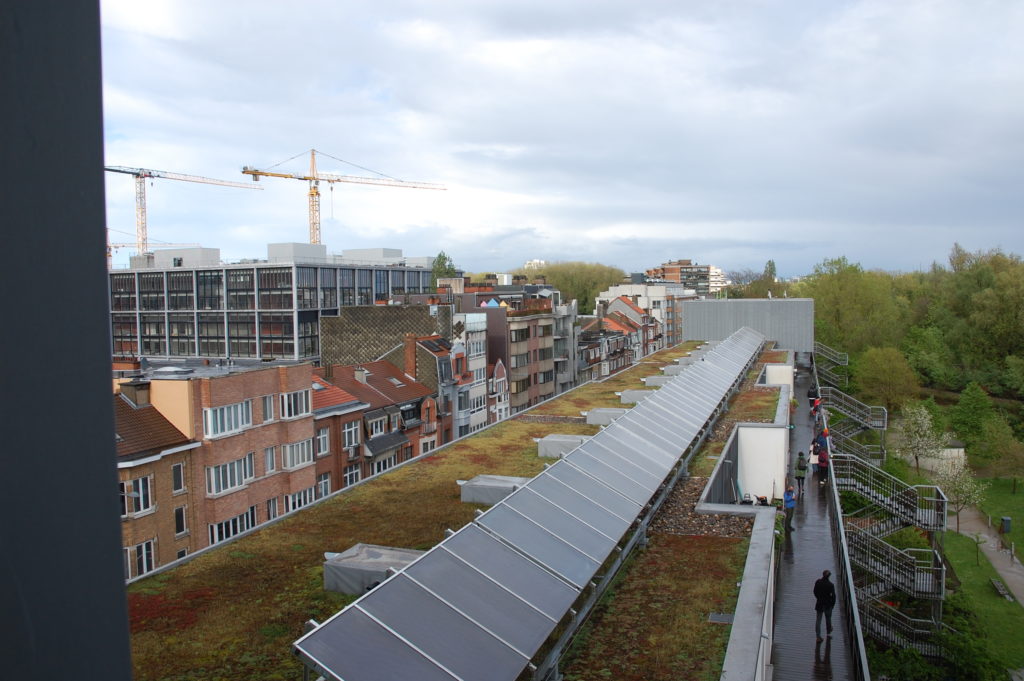
Apart from making available dwellings that are energy efficient, healthy living and offer thermal comfort, it is important to highlight that this project was carried out to align with Foyer Schaerbeekois’ commitment to build or carry out deep renovations on old buildings that no longer meet standards. Many Foyer Schaerbeekois buildings are relatively old and are dating back to the 1920s, a time where the concerns of energy-efficiency were not the same. The project sets a good example for others because it shows how public buildings can have a role in offering healthy and environmentally friendly dwellings for low-income households.
The project, as well as social housing in general, provides a mechanism for calculating variable rent based on tenants’ income as well as other socio-economic criteria (single-parent family, number of children, handicap,…) thus ensuring access to affordable housing. Allowing for measures that permits social housing buildings to be exemplary in terms of energy performance is hence key in view of allowing the reduction of energy poverty. In the example of the Colonel Bourg site, independence from on-site fossil fuel reduction also resulted in protecting tenants from high energy prices.
During the first year after the site opened, the social housing company ensured that tenants’ actions matched the expected theoretical energy consumption by monitoring electricity meters for any irregular usage and conducting proactive awareness-raising activities. Building on this idea and acknowledging the power of collective energy management awareness, the project also enlisted certain tenants to serve as ambassadors for incoming residents. This helped maintain a consistent approach to managing individual energy consumption. In doing so, Foyer Schaerbeekois demonstrated to us that the shift towards sustainable housing is a collaborative endeavor, also highlighting the significant potential inherent in such collective efforts.
On an individual level, the project also demonstrated that to fully benefit from passive standards, it is essential to grasp the new design principles, such as constant ventilation and minimal additional space heating. A principle that makes the most of environmental, economic and health benefits.
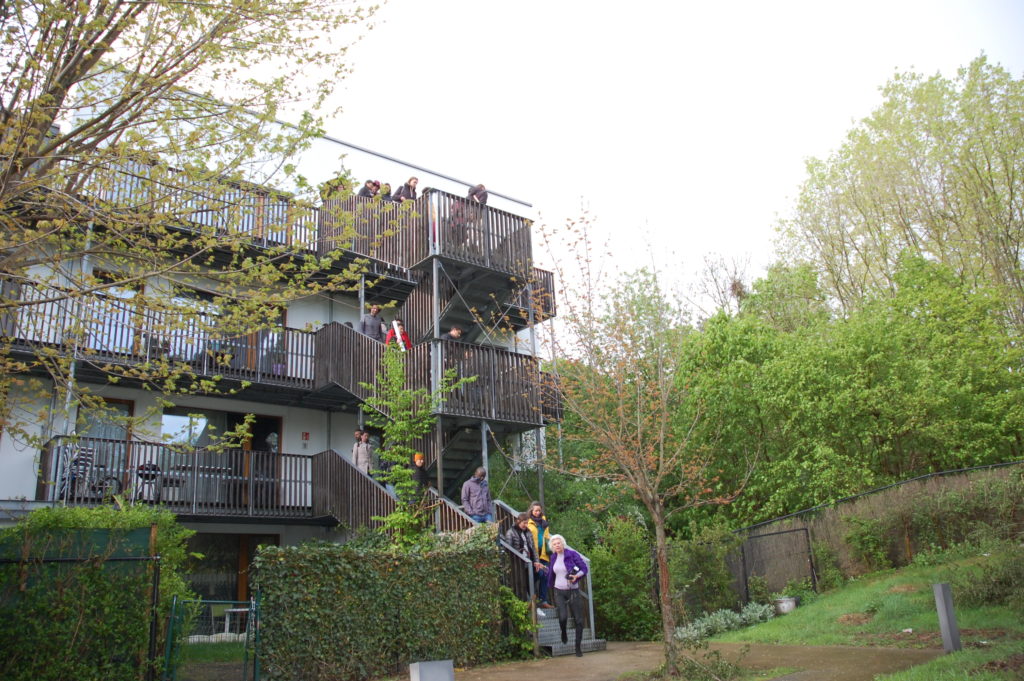
Lessons for expediting a socially just buildings transition
The Colonel Bourg project also serves as a poignant illustration of broader challenges that must be addressed to advance towards more affordable and sustainable housing.
First and foremost, our visit and ensuing discussions underscored our comprehension of the principal challenges confronting the building stock in cities like Brussels: an ageing and inefficient building stock, limited available space, environmental constraints hindering the feasibility of new construction, and a pressing housing crisis characterised by a high demand for housing juxtaposed with a scarcity of affordable options. This underscores the critical importance of prioritising the renovation of existing buildings, repurposing unused or underused structures, and ensuring that this process is accompanied by adequate social safeguards to prevent anyone from being left behind, or worse, homeless.
Our exchanges with the members of the social housing company have also highlighted the need for appropriate regulatory and financial mechanisms to fully exploit the potential of available technological solutions. When asked what could have been done differently if the project had been designed today, participants pointed out the difficulties associated with forming a renewable energy community at the time, which could undoubtedly have allowed for a larger installation of photovoltaic solar systems on rooftops. Additionally, if the technology had been more advanced and the right incentives in place, the use of efficient heat pumps could have been considered as an alternative to less efficient individual electric heaters. These observations provide valuable insights for future renovation projects.
We come back from this visit ever inspired to fight to ensure affordable, decent and climate-friendly housing for all. It is evident that renovation efforts play a crucial role in promoting better health outcomes and mitigating energy poverty among communities. Public investment serves as a vital social safeguard, facilitating the creation of affordable housing options while mitigating the negative impacts of market mechanisms and enhancing resilience in times of crisis.
Furthermore, public investment emerges as a linchpin in the collective endeavour to reduce greenhouse gas emissions and curb energy demand, underscoring its pivotal role in fostering a building stock in line with the Paris Agreement objective of 1.5 C and addressing pressing environmental challenges.
